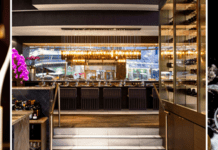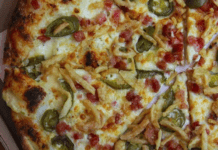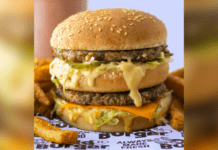Prior to the COVID-19 pandemic, the retail-shopping landscape was evolving rapidly in every segment of the market. In this shifting environment, savvy retailers were reinventing themselves and experience was top of mind for most.
In a time of fierce competition, experiences can help brands and retailers demonstrate their added value. Embarking on an experiential strategy, however, is easier said than done.
The foodservice industry operates as part of this overall retail economy and, as such, is not immune to the trends taking place in the non-foodservice industries. In many ways, our industry has been slow to adapt to these new paradigms but, change was coming long before the COVID-19 crisis began. These past few months have only served to heighten and accelerate the disruption.
Analyzing market information from across industries, The NPD Group has identified seven key experiential models to help brands and retailers create compelling value propositions that move beyond product. These are the Seven Winning Experiential Models, as applied to the foodservice industry and updated for a post COVID-19 landscape.
Convenience: Provide consumers access to products in a manner in which they want it, when they want it. Amazon has taught us that we no longer need to leave the sofa in order to purchase goods. COVID-19 taught us that staying at home for work and entertainment is equally feasible. Restaurants that were able to answer the demand for instant access to food by employing technology, virtual-kitchen models or other techniques, have survived or even thrived during this time. Others are also offering convenient new product lines, including grocery items, meal kits and pre-packaged menu staples suitable for
in-home consumption.
Expertise: For restaurateurs, this means educating your customers about the food they’re purchasing. During this post-pandemic era, messaging will need to extend to topics such as cleanliness, sanitation and physical-distancing protocols. As with any messaging, it is crucial to be consistent and persistent.
Treasure Hunt: Often, consumers don’t know what they’ll end up buying until they see it. Technology is a great tool to help remind consumers of your special offerings and encourage them to make a purchase they didn’t know they needed. Take it a step further by offering something with limited access — creating some ‘artificial scarcity.’
Curation: Present consumers with options that best meet their needs. For restaurant operators, ask customers what they want and make meaningful suggestions that allow for product discovery. Be sure to consider how people’s food needs have changed during this time. Off-premise solutions are top of mind right now and personal safety is just as important as the menus for on-premise visits.
Entertainment: In a restaurant, entertainment can be viewed as something as simple as a tabletop ordering system that tracks your order through the kitchen and provides activities to entertain kids. Consider also how technology can enable operators to host virtual cooking classes or cocktail parties. Meal kits are another terrific way to provide entertainment to sheltering customers. These can extend beyond menu items to include cocktail kits. And if they are family-focused, it’s an added bonus for this customer set.
Frictionless: Leverage technology to help consumers save time during the ordering process. Digital ordering and delivery, touchless payments, loyalty and customer relationship-management tools, online reservation systems and social media are all crucial to any business today.
Community: Use expertise and high levels of customer interaction to build a community of product enthusiasts. This model includes the obvious need to interact with the community in which your business is located. Also consider how you can build a community of brand advocates and devotees based on your ideology. It could be some time before restaurants return to their full glory as community social-gathering places. Therefore, consider how you can host smaller gatherings for a select group of guests or catered affairs that people can host at homes
The COVID-19 crisis has fuelled the e-commerce revolution that had been raging across the retail landscape for years. So much about how we operate our businesses and how consumers will interact with brands in the future, has changed. Savvy foodservice professionals will understand that sometimes the food just isn’t enough.

















